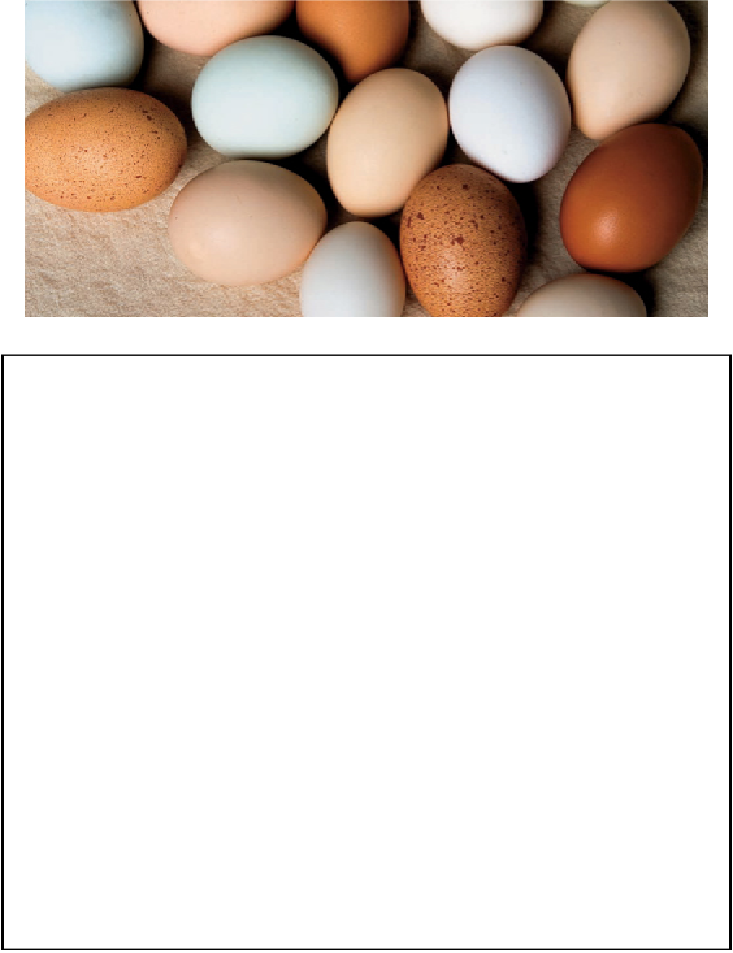Agriculture Reference
In-Depth Information
If We Are What We Eat, Let's Be Something Better
FOR YEARS WE AMERICANS HAVE CHOSEN
cheap, seasonless selections
and endless variety over healthy, in-season crops raised without pesticides. Some say
that a local organic diet is an elitist goal that regular folks can't afford. We've bought
the lie that eating whatever we want of lesser quality is a good thing because it's easi-
er. And because we don't have to connect the cow with the burger—or the caged hen
with the egg.
Ask the average American if he or she would rather buy a feedlot chicken pumped
full of antibiotics yet riddled with bacteria or drive to the farmers' market down the
block and pay a dollar more a pound for a free-range, disease-free bird, and most
would prefer the healthier option. But oddly, few choose it.
And the misconceptions are rife. One organic farmer was almost shut down for
processing his poultry outdoors near the fields they pastured on—the rationale was
that outdoor living rendered the birds unclean. So he sent a large sampling of his
stock and an equal sampling from a grocery store to be tested for bacteria. His came
back ridiculously healthier—without the benefit of multiple chlorine baths and a
“safe” packaging plant.
I understand that we have a world to feed. The point is not to boycott the grocery
store but to change what's inside. Buy local, buy organic. Ask the clerks what was
grown in your area. Show the people who order produce that this is what buyers want,
and things will change.

